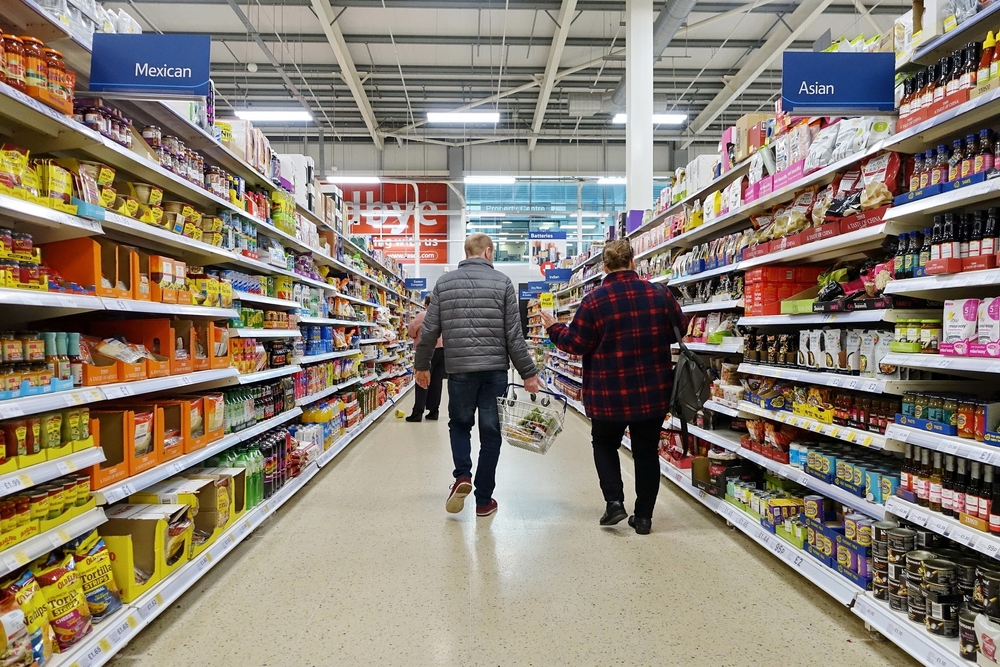U.K. inflation finally dropped below double-digits last month for the first time since August last year, but food prices continued to rise at alarming rates.
Figures released by the Office for National Statistics (ONS) on Wednesday showed inflation had dropped to 8.7 percent in April, down considerably from the 10.1 percent recorded in March.
However, inflationary pressures are subsiding at a slower pace than predicted, failing to reach the 8.2 percent estimated by financial experts.
While the headline figure suggests an improvement in the cost-of-living crisis that has enveloped Britain in recent years, a closer look at the numbers shows concerning price surges for staple foods such as sugar, milk and pasta.
In fact, food and non-alcoholic drink prices soared by 19 percent in the year to April, only slightly less than the 19.2 percent recorded last month, which was a 45-year high.
Most notably, sugar is up 47 percent in the last 12 months, cheddar cheese is up 39 percent, while the price of eggs, milk, and potatoes have also risen by 37 percent, 33 percent, and 28 percent, respectively.
“Prices in general remain substantially higher than they were this time last year, with annual food price inflation near historic highs,” said Grant Fitzner, the ONS chief economist.
Commenting on the figures, Chancellor Jeremy Hunt said: “Although it is positive that it is now in single digits, food prices are still rising too fast.
“So, as well as helping families with around £3,000 of cost-of-living support this year and last, we must stick resolutely to the plan to get inflation down.”
U.K. inflation remains higher than a number of other advanced economies in the Western world, including Germany (7.6 percent), France (6.9 percent), and the U.S. (4.9 percent,) and the U.K.’s opposition Labour party has used Wednesday’s announcement to call into question the governing Conservative party’s competence in handling the issue.
Families worried about food prices “will be asking why this Tory government still refuses to properly tackle this cost of living crisis, and why they won’t bring in a proper windfall tax on the enormous profits of oil and gas giants,” Labour’s shadow chancellor Rachel Reeves said in response.






